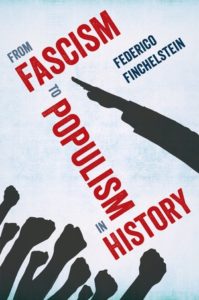 On July 18, 1994, unknown attackers bombed the Argentine Israelite Mutual Association (whose Spanish acronym is AMIA), a Jewish community center in Buenos Aires. This still-unresolved terrorist attack killed 87 people and injured more than 100. It stands as the world’s most lethal anti-Semitic attack since World War II, note
On July 18, 1994, unknown attackers bombed the Argentine Israelite Mutual Association (whose Spanish acronym is AMIA), a Jewish community center in Buenos Aires. This still-unresolved terrorist attack killed 87 people and injured more than 100. It stands as the world’s most lethal anti-Semitic attack since World War II, note
This week, as we mark the 25th anniversary of the greatest single loss of Jewish lives outside Israel since the Holocaust, it is imperative that we grapple with anti-Semitism as a global issue, they write for The Washington Post:
The unsolved AMIA bombing is of critical historical importance, not only for the Jewish community in Argentina or for those who lost family members, colleagues and friends in the attack, but for Argentina itself. ..As Elie Weisel said, “The opposite of love is not hate, it’s indifference.” Continued indifference is not an option. As Argentina’s response to the 1994 attack shows us, when anti-Semitism in a democracy is not called out and stopped, the democracy itself is at risk. When a nation is indifferent to violence and racism facing Jews and other vulnerable populations, the nation is not safe at all.
 After the horrors of the Holocaust, a commitment to minority rights, religious freedom, an inclusive vision of nationhood and a human-rights-based liberalism seemed to be the bedrock of political life in Western democracies…. [And yet…] On any given issue—from economic inequality to the financial crisis to immigration and terrorism—old and new conspiracy theories blaming the Jews have gained new traction, abetted by the political polarization and general crisis of confidence permeating Western democracies, Yaroslav Trofimov writes for The Wall Street Journal.
After the horrors of the Holocaust, a commitment to minority rights, religious freedom, an inclusive vision of nationhood and a human-rights-based liberalism seemed to be the bedrock of political life in Western democracies…. [And yet…] On any given issue—from economic inequality to the financial crisis to immigration and terrorism—old and new conspiracy theories blaming the Jews have gained new traction, abetted by the political polarization and general crisis of confidence permeating Western democracies, Yaroslav Trofimov writes for The Wall Street Journal.
“Latent anti-Semitism is being activated,” said David Feldman, director of the Pears Institute for the Study of Anti-Semitism at Birkbeck, University of London. “Populist politics is not inherently anti-Semitic, conspiracy theories are not inherently anti-Semitic, but both very easily lend themselves to an anti-Semitic turn and easily become anti-Semitic.”
British Labour parliamentarian John Mann has assembled a Reader on The Oldest Hatred of antisemitism (above), featuring contributions from Albert Einstein and Jean-Paul Sartre to George Washington and Emile Zola, under the auspices of the ‘All-Party Parliamentary Group Against Anti-Semitism’

Kyiv Jewish Forum
Since the state of Jewish security is often taken as a barometer for measuring the stability and well-being of a country, it is not surprising that the crisis of democracy has been accompanied by a rise of anti-Semitism, the National Endowment for Democracy’s Carl Gershman told the Kyiv Jewish Forum in May:
Rabbi Lord Jonathan Sacks said in a debate on anti-Semitism in the British House of Lords that anti-Semitism becomes dangerous when three things happen: when it moves from the fringes of politics to the mainstream of a party and its leadership; when that party sees that its popularity with the general public is not thereby harmed; and when those who stand up to protest are vilified and abused for doing so. “I never thought I would see this in my lifetime,” Rabbi Sacks said, but now all three of these factors exist in Britain.
“Liberal democracies have been good for the Jewish people. Civil rights have been critical to our success in societies which, in the absence of these rights, over centuries and millennia systematically discriminated against and marginalized Jewish people,” said Jonathan Greenblatt, the director of the Anti-Defamation League in New York. “The trend away from liberal democracies is bad for the Jewish people, period.”







